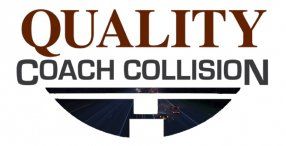Bodily Injury Liability
This type of coverage protects you if someone is injured or killed by your vehicle. Provided that the dollar value of your coverage is large enough, this can fund your legal defense and even pay for any legal judgments against you if you are proven to be at fault (if an injured party or their next of kin take legal action against you). It should include covering lost income and medical expenses of the injured parties. 'Bodily Injury Liability' coverage does not cover you or anyone in your vehicle. That’s what Medical Payment or Personal Injury Protection coverage does. (Read 'Collision Coverage' definition below.)
Collision Coverage
This type of coverage pays for any damage to your vehicle resulting from a collision with another vehicle or object. For older vehicles, this coverage may not be worthwhile since it is usually limited to the cash value of the covered vehicle. While not legally required, collision coverage is often required by lenders if you are buying or leasing a new vehicle. *There are some insurance companies that will replace your vehicle (if demolished in a collision) without 'depreciation' value. *Be sure you are aware of the specifics of this type of coverage on your plan if you have it in your insurance plan.
Comprehensive Coverage
This type of insurance is also known as physical damage coverage or Other-Than-Collision (OTC) coverage. If your vehicle is damaged by something other than a collision with another vehicle or person, this will generally cover it. Comprehensive coverage covers the following:
- Theft
- Damage Resulting from a Falling Object
- Damage Resulting from Striking an Animal
- Broken Windows
- Storms
- Natural Disasters like Tornadoes,
- Hurricanes, Hail and Earthquakes
- Property Damage Coverage
In a collision, if your vehicle damages someone else’s vehicle or other property, this coverage will pay for the damages. Some insurance companies offer a version of this coverage that includes protection from legal claims filed as a result of damage to someone’s property. Each state sets a minimum amount of this coverage that’s legally required to drive in that state. Some states’ minimum amounts are unrealistically low because the limit was set decades ago.
Deductible
A deductible is a sum of money that a policyholder pays out-of-pocket so that their insurance company will pay their claim. Most auto insurance policies have deductibles, but there is a wide range of them which is usually from $0 to $1,500. There is generally an inverse relationship between the amount of a deductible and the amount of a premium. Policies with high deductibles generally have a lower premium. Policies with high premiums generally have a lower deductible. Even though high deductibles will save you money each month, if you have to file a claim, you may have to pay a large amount of money out of pocket. This is the risk that a policyholder will take when trying to save money with the high deductible insurance plan option.
Direct Repair Program (DRP)
This is a program where the auto body shop and the insurance company has already worked out the pricing agreement for the parts and labor for all of the insurance company's customers with the auto body shop. This may streamline repair process, since the pricing has already been negotiated and agreed upon in advance.
Gap Insurance
When you drive a new car off the lot, it immediately loses a sizable percentage of its value. If it then gets totaled in a crash, you owe the dealership for a new car, but the insurance company will pay you the 'Blue Book' value for your now-used car. Gap insurance helps drivers avoid this problem by paying the difference between what a driver owes and what they are paid if the vehicle is totaled.
No-Fault Insurance
Some states have adopted no-fault insurance systems to try to reduce costly lawsuits stemming from car accidents. In no-fault states, drivers are generally prevented from suing other drivers unless they are seriously hurt. In no-fault states, if one gets in an accident involving another driver, your insurance claim is paid by your own insurance company, instead of the insurance company of the driver determined to be at fault.
Personal Injury Protection Coverage or (Medical Payments from this type of insurance coverage)
These cover injuries to the driver and passengers in your vehicle. They may cover injuries to pedestrians as well, depending on the policy. They are typically required in no-fault states, but they are considered optional coverage in other states. Be sure to know the details of this type of insurance protection in your plan.
Premium
The payment made to an insurance company obligating them to pay insurance claims according to the terms of your policy. Premiums can be paid yearly, every six months, or even monthly. Insurance company carriers will usually give the consumer a discount for pre-paying their premium, instead of paying it on a monthly basis. An auto insurance premium is also called an auto insurance rates (these two terms are a synonymous).
Uninsured Motorist Coverage
This comes in two forms: Bodily Injury, which covers an insured driver and their passengers in the event that they are injured by an uninsured driver, and Property which covers damage to your vehicle caused by an uninsured motorist. It is estimated that one in seven drivers in the United States do not have car insurance, making this coverage something that all drivers should seriously consider.








